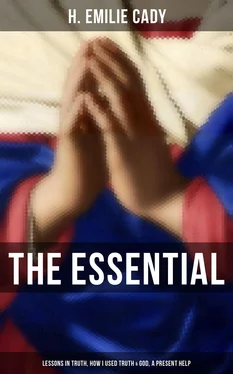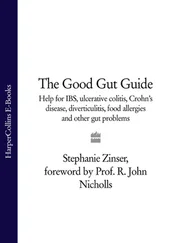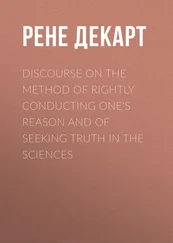4. This same Nazarene, to whom we always return because to us He is the best-known teacher and demonstrator of Truth, spent nearly three years teaching the people--the common everyday people like you and me, who wanted, just as we do, food and rent and clothing, money, friends, and love--to love their enemies and to do good to those who persecuted them, to resist not evil in any way, but to give double to anyone who tried to get what belonged to them; to cease from all anxiety regarding the things they needed because "your heavenly Father knoweth that ye have need of all these things" (Mt. 6:32). And then talking one day He said, "These things have I spoken unto you, that my joy might remain in you, and that your joy might be full" (Jn. 15:11). And He continued, "Whatsoever ye shall ask of the Father in my name, he may give it to you" (Jn. 15:16). "Ask and ye shall receive, that your joy may be full. . . I say not unto you, that I will pray the Father for you: for the Father himself loveth you" (Jn. 16:24-26). We have further learned that God is the total of all the good in the universe and that there is in the mind which is God a perpetual desire to pour more of Himself--the substance of all good things--through us into visibility, or into our lives.
5. Surely all these things do not make it look as though, when Jesus said that the way to be like him and to possess a like power was to deny oneself, He meant that we are to go without the enjoyable comforts of life or in any way deprive or torture ourselves.
6. In these lessons we have seen that, besides the real innermost self of each of us--the self that is the divine self because it is an expression or pressing out of God into visibility and is always one with the Father--there is a human self, a carnal mind, which reports lies from the external world and is not to be relied upon fully; this is the self of which Jesus spoke when He said, "let him deny himself." This intellectual man, carnal mind, or whatever you choose to call him, is envious and jealous and fretful and sick because he is selfish. The human self seeks its own gratification at the expense, if need be, of someone else.
7. Your real self is never sick, never afraid, never selfish. It is the part of you that "seeketh not her own, is not easily provoked, thinketh no evil" (1 Cor. 13:5). It is always seeking to give to others, while the human self is always seeking its own. Heretofore we have lived more in the human region. We have believed all that the carnal mind has told us, and the consequence is that we have been overwhelmed with all kinds of privation and suffering.
8. Some people who, during the last few years, have been making a special study of the mind find it a fact that certain wrong or false beliefs held by us are really the cause of all sorts of trouble--physical, moral, and financial. They have learned that wrong (or, as they call them, error) beliefs arise only in the human mind; they have learned and actually proved that we can, by a persistent effort of the will, change the beliefs, and by this means alone entirely change our troublesome circumstances and bodily conditions.
9. One of the methods that they have found will work every time in getting rid of troublesome conditions (which are all the result of erroneous thinking and feeling) is to deny them in toto: First, to deny that any such things have, or could have, power to make us unhappy; second, to deny that these things do in reality exist at all.
10. The word deny has two definitions, according to Webster. To deny, in one sense, is to withhold from, as to deny bread to the hungry. To deny, in another sense (and we believe it was in this latter way that Jesus used it), is to declare to be not true, to repudiate as utterly false. To deny oneself, then, is not to withhold comfort or happiness from the external man, much less to inflict torture upon him, but it is to deny the claims of error consciousness, to declare these claims to be untrue.
11. If you have done any piece of work incorrectly, the very first step toward getting it right is to undo the wrong, and begin again from that point. We have believed wrong about God and about ourselves. We have believed that God was angry with us and that we were sinners who ought to be afraid of Him. We have believed that sickness and poverty and other troubles are evil things put here by this same God to torture us in some way into serving Him and loving Him. We have believed that we have pleased God best when we became so absolutely subdued by our troubles as to be patiently submissive to them all, not even trying to rise out of them or to overcome them. All this is false, entirely false! And the first step toward freeing ourselves from our troubles is to get rid of our erroneous beliefs about God and about ourselves.
12. "But," objects one, "if a thing is not true and I have believed a lie about it, I do not see just how my believing wrong about it could affect my bodily health or my circumstances."
13. A child can be so afraid of an imaginary bugaboo under the bed as to have convulsions. Should you, today, receive a telegraphic message that your husband, wife, or child, who is absent from you, had been suddenly killed, your suffering, mental and physical, and perhaps extending even to your external and financial affairs, would be just as great as though the report really were true; and yet it might be entirely false. Exactly so have these messages of bugaboos behind the doors, bugaboos of divine wrath and of our own weakness, come to us through the senses until we are overcome by our fears of them.
14. Now, let us arouse ourselves. Denial is the first practical step toward wiping out of our minds the mistaken beliefs of a lifetime--the beliefs that have made such sad havoc of our lives. By denial we mean declaring not to be true a thing that seems true. Negative appearances are directly opposed to the teachings of Truth. Jesus said, "Judge not according to appearance, but judge righteous [right] judgment" (Jn. 7:24).
15. Suppose you had always been taught that the sun really moved or revolved around the earth, and someone should now persuade you that the opposite is the truth. You would see at once that such might be the case, and yet as often as you saw the sun rise, the old impression, made on your mind by the wrong belief of years, would come up and seem almost too real to be disputed. The only way by which you could cleanse your mind of the impression and make the untrue seem unreal, would be by repeatedly denying the old beliefs, saying over and over to yourself as often as the subject came up in your mind: "This is not true. The sun does not move; it stands still, and the earth moves." Eventually the sun would only seem to move.
16. The appearances are that our bodies and our circumstances control our thoughts, but the opposite is true. Our thoughts control our bodies and our circumstances.
17. If you repeatedly deny a false or unhappy condition, it loses its power to make you unhappy.
18. What everyone desires is to have only the good manifested in his life and surroundings--to have his life full of love; to have perfect health; to know all things; to have great power and much joy; and this is just exactly what God wants us to have. All love is God in manifestation, as we have learned in a previous lesson. All wisdom is God. All life and health are God. All joy (because all good) and all power are God. All good of whatever kind is God come forth into visibility through people or some other visible form. When we crave more of any good thing, we are in reality craving more of God to come forth into our lives so that we can realize it by our senses. Having more of God does not take out of our lives the good things--it only puts more of them in. In the mind that is God there is always the desire to give more, for the divine plan is forever to get more good into visibility.
Читать дальше












